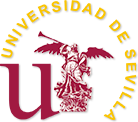Becas/ Prácticas en diseño de radares
Hemos recibido información (vía el Secretariado de Práctias en Empresa y Emprendimiento) sobre unas prácticas en diseño de radares con aplicaciones a la optimización de matrices de radares para sistemas de asistencia en conducción.
Internship in Radar array design
This is an offer for a 6-month internship at Fraunhofer FHR in Wachtberg (Germany) in the department of Cognitive Radar in the topic of mathematical optimization of radar arrays for future autonomous vehicles.
Starting date: from June
Compensation: depends on nature of the internship (Up to 1700 € net).
About the topic
Antenna Array design is a broad area of research with applications in all areas of Radar, and shared mathematical principles with other areas like acoustic and Sonar sensors. Our interest is in Automotive radar frequencies for Advance Driving Assistant Systems and future autonomous vehicles, in the band 77-79GHz. We aim to optimize the array configuration, rather than the antenna itself, and therefore we abstract the underlying electromagnetic phenomena to focus, instead, on the directionality properties achieved by the geometry of the array. Namely, we wish to obtain arrays that use few transmitters and receivers (i.e., sparse) but with big aperture and good directionality properties. Our problem thus becomes a mathematical optimization problem and we pay special attention to the definition of the objective function, constraints, and global (nonconvex) optimization algorithms like simulated annealing or genetic algorithms. In addition, we test the performance of the obtained optimized arrays in simulated scenarios of direction of arrival estimation using some popular algorithms in the Radar community like the Discrete Fourier Transform, MUSIC, or Maximum Likelihood, and other algorithms denominated as sparse reconstruction or Compressed Sensing.
In summary, we focus on a rigorous mathematical optimization approach but we also consider practical aspects such as the speed of convergence and the quality of the obtained arrays in empirical simulations (and eventually with real radar measurements). Some of our ideas are being considered by chip makers and automotive companies that want to achieve the best resolution and ambiguity suppression properties with few transmitters and receivers.
Prerequisites
Last year of master degree with excellent grades in area related to Mathematics, Physics, Electrical Engineering or Computer Science
Good knowledge of English
Fluent in Matlab (preferred), or, alternatively, Python or C.
What you will obtain with us
Support and guidance in every aspect of your work
Working and collaborating in a group with passionate and caring individuals
Learning about Radar, array design, direction of arrival estimation algorithms, compressed sensing, etc.
Benefitting from the networking and mentoring opportunities at Fraunhofer, the largest applied science institution in Europe
Gaining familiarity with technical problems in Radar sensors in high demand in the automotive industry
Opportunity to learn German and live near a vibrant and international city that was the former capital of Germany
What we expect from you
We expect you to be dedicated and enthusiastic achieving the assigned goals.
We expect a level of maturity in mathematics and science that allows you use our guidance to learn about radar signal processing and proposed techniques and have a good level of autonomy and perseverance in your work, although of course we will be close to you.
We expect an open attitude to ask questions and flexibly collaborate with us.
What we will achieve together
We will extend our current techniques for array design and develop new ones. We will use these techniques to consult for companies, and publish some of our results.
Contact information
Interested, please send your CV and contact information to María González-Huici maria.gonzalez@fhr.fraunhofer.de, or/and David Mateos-Núnez david.mateos-nunez@fhr.fraunhofer.de. Tell us one or two concrete reasons why you think you are specially qualified for this position and, if possible, send us the contact information of one person that can attest your vocation.










